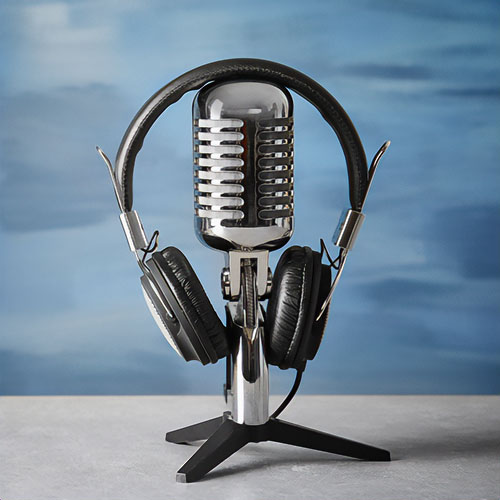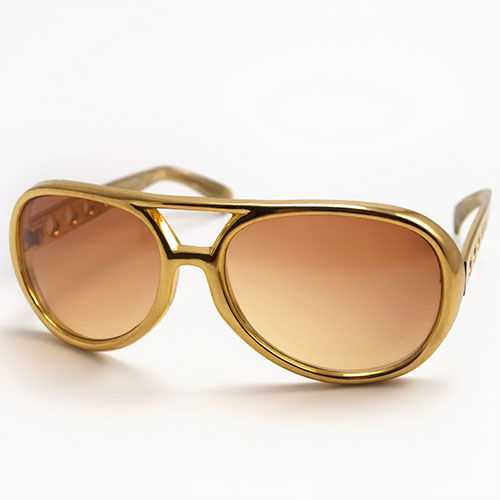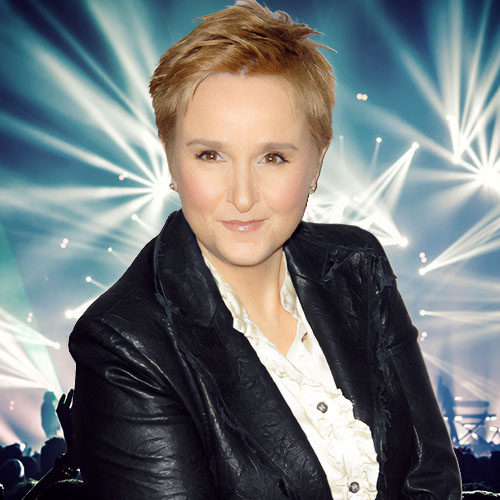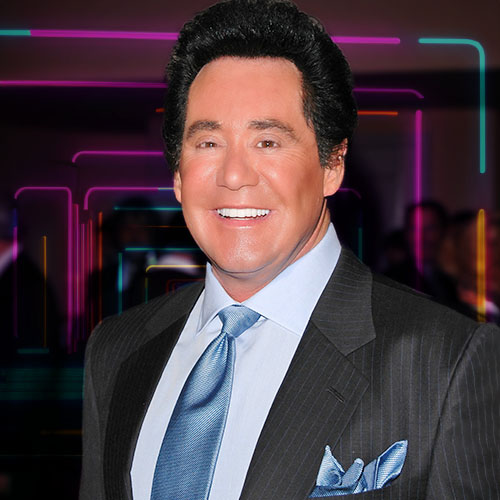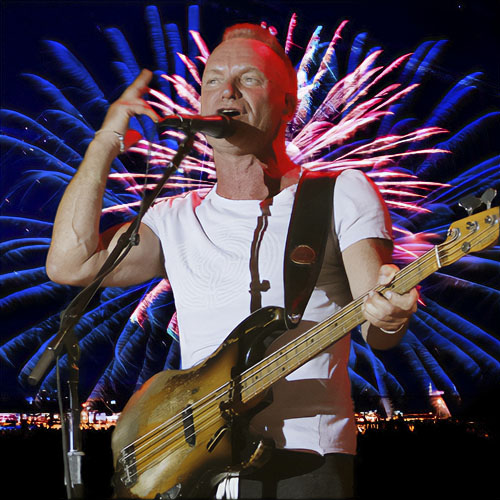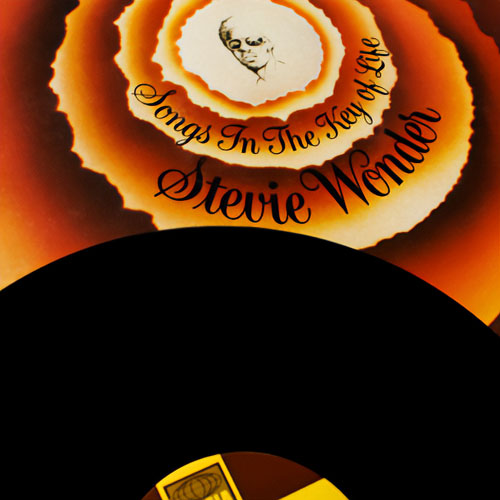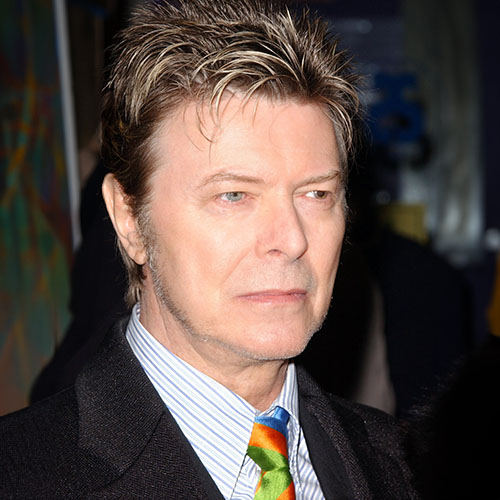Gary Allan has bypassed the manufactured hits and easy path to stardom, opting instead to chronicle the deeper potholes along the road of life. It’s working for him.
No Regrets
Gary Allan could be called the Jack Kerouac of country music. The 43-year-old singer-songwriter is a maverick whose music hangs out in the dark corners of Nashville’s psyche. He writes emotion-packed hits about life’s harsher struggles-and he knows what he’s talking about. One night in October 2004, his 36-year-old wife, Angela, was feeling ill. She sent him out of the bedroom for a soda. While standing in the kitchen, Allan heard a loud pop and thought Angela had thrown something, only to discover she had stuck a pistol in her mouth and pulled the trigger. Allan’s releases since then have continued to relate his life experiences, and allowed him to express his grief.
Though he played his major-label showcase in 1996-an eternity ago in the music business-he has just now moved from supporting-act status to headlining theatres and arenas, despite releasing back-to-back platinum records and selling more than six million albums to date. And that’s just the way he likes it. This epitome of cerebral country cool with four No. l hits and more than ten Top 10 singles never likes to get anywhere in a hurry.
Gary Allan Herzberg grew up in Huntington Beach, California, and spent his days surfing the bright waters of the Pacific, his nights in the dim blue-collar bars, playing both shit-kicker country and attitude-laced punk. Whatever he did, he immersed himself in it, a philosophy that sticks today. The motorcycle enthusiast is also an avid golfer, replete in Payne Stewart knickers. (“My 16-year-old was hilarious. She said, ‘Dad, what are you doing? You look like a dork.’”)
From the beginning, it was obvious that you knew who you were, musically. Rather than shoot up quickly, you’ve slowly built a solid career. But was it your plan to take this many years to get where you are now?
I don’t know if it was my plan to take this many years, but we definitely knew that it was going to be a slow burning. I had a lot of talks with everybody about that, and I had to get it across that we were never going to be the latest, greatest thing because those always burn out. I just like to make music. I try to stay out of the way and let somebody else handle the politics side and sell it.
What was the turning point for where you are now?
I have no idea, because my touring is bigger than it’s ever been by a long shot, and way ahead of [how much I get played on] radio.
I feel like the label’s got to catch up to what we’ve got going. It’s a fairly wide demographic, but our audience is pretty young. I noticed when we played with Brooks & Dunn that their crowds were a lot older.
Hard to believe Brooks & Dunn won’t be around anymore.
Yeah, I’m sure they were both ready to get rid of each other for a while. But there’s so much history there. They’re a class act, and very personable. I toured with Alan Jackson twice and never met him. But I talked to those guys dang near every day. I learned a lot from them on how to treat other acts. They’re quality people; just really cool.
The Gary Allan style has broadened through the years. How do you see the evolution of your sound? Beginning with the Bakersfield influence, right?
Yeah. And now it’s more rocklin’. I tell people that we quit playing country music when the radio quit playing it. I try to make a well-rounded album, but I want stuff that really cuts to the bone, that has a lot of emotion and layers to it, so you never catch it all on the first listen. I never thought that I had to have a big arena song on each album. If a song doesn’t move me, I can’t do it. And there have been lots of big hits [by other songwriters] that I passed on, but I just wouldn’t have wanted to be responsible for singing them.
Let’s talk about your current album, Get Off on the Pain. It seems a continuum of your previous work, but it also stretches you.
I think this one says I’m doin’ okay, if you’re still looking at me through my wife and the things that I have been through. It says I’m sleepin’ okay, and that I’m in a great place with all of it. There’s a lot of reflection, and a lot in there that I touched on, on the other albums, but stylistically I was still able to do things I hadn’t done before. “Kiss Me When I’m Down” was a pop song when I got it.
The title song seems to sum up everything you’re about. I like this line: “I ain’t really happy until the sky starts driving rain.” Rain is a metaphor that has run through a number of your songs.
There’s been a lot of rain in my life and career.
And yet you have a real affinity for water, having grown up around it. What does it mean to you?
It’s the most energy. When I was a kid I spent every morning in it before school, and then when I moved to Tennessee, that was all I really cared about-that I lived by water. I live on a lake in Hendersonville. I find myself going out there in the middle of the night all the time, just sittin’ on the dock. I’ll take my guitar down there when I know nobody can hear.
No surfing in Tennessee though, right?
No, we wakeboard. That was the most aggressive thing that I could find to do on the water without waves. It’s about jumpin’ from wake to wake, getting a lot of air.
I want to read you something you said about being on the road: “You’ll never hear me singing about tractors or farms, just because I don’t know anything about that stuff. Wrong roads and dark horses I know about. That’s my whole life. I love a long shot. Still, I think the pain can get to be some kind of a positive for me, because it connects to everything I ever dreamed of. It’s confirmation of the actual existence of this big musical drama, the result of the dream.”
Well, I’ve hired people and they get so beat up by the road so quick. Doesn’t matter if you are tired in the morning, you wake up and you shake it off and you go to the gym and sweat out whatever it was that you did and you take your happy ass in there and you start the party over. It’s relentless, but it’s everything that I love. The whole reason I make music is so that I can play large. And in getting to go out and do that for everybody, it almost doesn’t matter what the cost is. You’ve got to get off on it.
So in a sense the road is therapy for Gary Allan?
Absolutely. Writing is the biggest therapy for me, but no matter what you’re going through, when you get on the stage you forget it all. That’s the only time you don’t feel the pain, because you have to be so focused on what you’re doing that it all goes away.
Most artists are really misfits. If they weren’t able to be creative, they’d be in a world of trouble.
I agree. I love kicking around every emotion with my friends. That totally got me through my wife’s passing.
“No Regrets,” a song you wrote about Angela’s death, is the cornerstone of the new album.
Yeah, there are a lot of tears and a lot of truth in that song. When I look back, I’ve got a clear conscience. I don’t have any regrets.
I did all I could, and I loved her.
There’s a lot of love still there.
Yes. Yes, yes, yes.
Why did she choose to leave?
Oh, there are so many theories on that. I think she was bipolar, and they were treating her [migraine] headaches with a lot of depression drugs, and she just spun out and got into a place where I don’t even think she knew it was real, and she shot herself. She was just in a lot of pain.
A lot of psychotropic drugs increase the risk of suicide.
Yeah. It’s shocking to me that just a regular doctor can prescribe those. Going back through it, nobody really did anything blatantly wrong, but at best the doctors were firing at about 30 percent. Nobody had a grip on it, and it’s really disappointing how obvious the cycle was, in hindsight.
Did you see it coming?
No, she never said anything to me about killing herself, and after it happened, everybody was shocked that I had never heard that. But not even once did anybody bring that up to me, and evidently she had told a few people.
How did you deal with it emotionally?
Music. I was a wreck for a long time. The roughest part was dealing with the kids, but I think that was what helped me the most, because I had six of them [three of his own and three of Angela’s]. I took them all to therapy. I don’t think I drank or smoked pot for almost nine months; I just panicked that I was going to drop the ball on somebody. I wanted to do it right and make sure I had everybody covered. I went to see principals and teachers, because I knew that everybody needed a lot of help. And they are all solid. They came through it really well.
Have you forgiven Angela?
I have. She was such a great mom, and I can’t imagine that if she gave an inkling of thought to her kids … it’s just mind-blowing.
That was your third marriage. Will Gary Allan remarry?
If it was perfect. It’s really difficult for me to think about. I’m pretty hard to get close to now.
You had a stalker for a while. How did that come about?
Well, my first experience, the woman came up to me in a bar and tapped me on the back of the head and yelled really loud, “Hey, we need to talk!” I said, “Well, my friend’s playing. Maybe after that.” And she tapped me on the head again and said, “We need to talk now!” And I remember looking back and saying “No. Beat it.” And she started screaming louder. She said, “Why, Mr. Fuckin’ Big,” and didn’t stop. I looked up at her and said, “You don’t look remotely familiar to me.” She kept screaming, so I got up and walked out, and she “motherfuck”-ed me out of the bar. A couple of weeks later, she came to my house. I told her she needed to go, and then she came back when I wasn’t home. My neighbor called and said, “There’s a woman kicking your dog and throwing stuff at your cars.” I went to court over it, and it’s not over yet. It’s just been the creepiest thing.
What kind of woman are you attracted to? What constitutes a sexy woman?
Confidence. A woman’s attitude is most of it. She can’t be arrogant, but she has to have some mystery to her.
And she has to like tattoos. You have some very serious artwork going on there.
Well, I’ve always liked tattoos. I got my first one when I was 15. My mom cried and said, “You may as well rob banks. You look like a criminal now.” I’ve got a skull on my left arm. He’s pointing a shotgun at you with one hand, and he’s rolling the dice with the other. To me, that symbolizes what we do. Music is like rolling the dice. It’s a gamble, but we’re taking the fucking money anyway [laughs]. And the one on my right arm is a tribute [to Angela]. It’s an angel sitting in a broken heart. And on my back, I’ve got a huge tattoo. It’s the stuff that my logos are drawn from: the bronc rider, the skeleton guy.
What kind of kid were you growing up?
I was a good kid. My mom was very Mormon, still to this day has never drank, smoked, and my dad was the polar opposite. He smoked and drank. I’ve played bars with him since I was 12.1 had to go outside during the breaks because I was underage, and somebody would have to come out and stand with me because I was so little. I think I spun out once as a kid and did a bunch of drugs and drank, but after that, I really didn’t drink until I was 25, until I got divorced the first time. I didn’t want to do a bunch of drugs, but I didn’t really want to feel like me. But yeah, I was a very straight kid. I think it was because I had drunk people hitting on me in the bars. When the older ladies hit on me when I was 14 and 15, the whole alcohol thing was just a turn-off.
You got your first record-deal offer when you were 15, but your father refused to sign it because he thought you weren’t ready.
Yeah. His exact words were, “You need to play for the people who love you, the people who hate you, and the people who could care less. And then you need to learn to play for yourself.” He said I was imitating people, and I had to wait until I found myself, which I didn’t do until I was 23. So many people out there touring and headlining today didn’t come up like that. They got their deal off a karaoke contest and have no body of work. And it’s sad, because we’ll never see them be the best that they can be. They’re just singing a bunch of songs that other people already did. How can they take me through a night of emotion? There’s no way to deliver emotion like that.
Certainly not in country music.
Oh, and it’s really disappointing to watch them take this pop approach to it. The result is, a lot of our stuff is being watered down. And I’m really worried about it never coming back.
Carrie Underwood won Entertainer of the Year [at the Academy of Country Music Awards], and she’s not even 40. How do you even do that? Back when I was a kid, even if you were rock or pop, you couldn’t help but be influenced by the depth that came out of country music, by Johnny Cash and Willie Nelson and Kris Kristofferson. It was just such hard-core truth. I remember the Highwaymen tour that they did. I was in the third or fourth row, and I just had chills, I was so blown away by them. And nobody was rock in’. It was just words they were cutting you with. That was when I said, “Here’s what I want to do.”
And [Merle] Haggard was huge to me. Now it’s all kind of poppy and candy-ish. It’s a drag.
“No Regrets” harks back to the Highwaymen era, in that it’s a song about difficult truths.
I’ve just gotten to a point where I can sing songs like that. I just told my band that we’re going to switch that into the show and create a moment like that. I don’t know if I will be able to talk about it, but I’ll be able to do some of the really emotional songs. Usually I stay away from all that stuff, because I’ll end up crying and just be a mess for the show. But’! think this is the year.
You may, of course, see what’s up with Gary Allan today, should you so desire. We do try to be helpful.
















